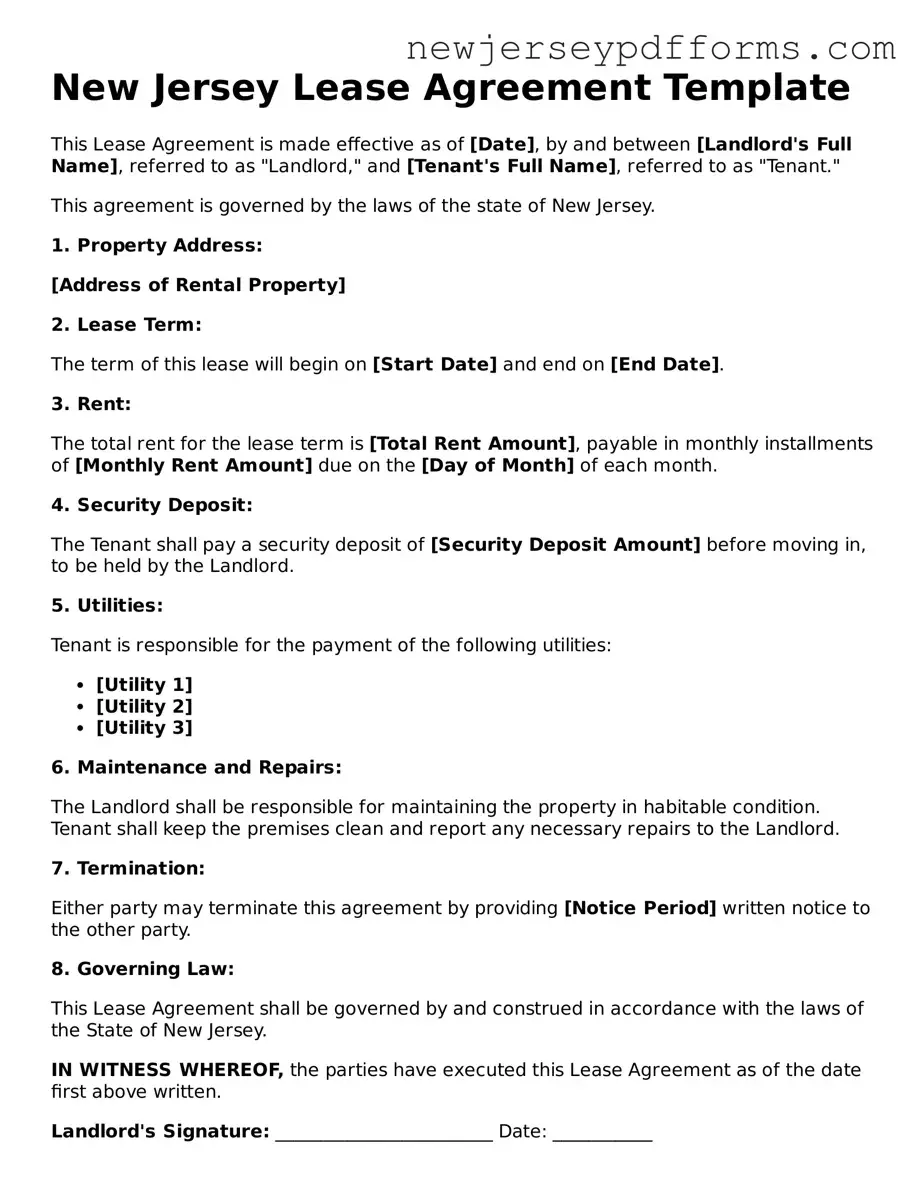What is a New Jersey Lease Agreement form?
A New Jersey Lease Agreement form is a legal document that outlines the terms and conditions between a landlord and a tenant for renting a residential property. This form typically includes details such as the rental amount, duration of the lease, security deposit requirements, and responsibilities of both parties.
What essential elements should be included in the lease agreement?
Key elements of a New Jersey Lease Agreement include the names of the landlord and tenant, the property address, lease duration, rent amount and payment schedule, security deposit details, maintenance responsibilities, and any rules regarding pets or smoking. Clearly defining these aspects helps prevent misunderstandings.
How long is a standard lease term in New Jersey?
In New Jersey, lease terms can vary widely but commonly last for one year. However, leases can also be month-to-month or for shorter or longer periods, depending on the agreement between the landlord and tenant. It’s important for both parties to agree on the lease duration before signing.
Is a security deposit required in New Jersey?
Yes, landlords in New Jersey are allowed to collect a security deposit, typically not exceeding one and a half months' rent. The law requires that this deposit be held in an interest-bearing account, and tenants must be informed of where the deposit is kept. This deposit protects landlords against potential damages or unpaid rent.
Can a landlord increase the rent during a lease term?
Generally, landlords cannot increase the rent during a fixed-term lease unless the lease explicitly allows for such increases. For month-to-month leases, landlords can raise the rent, but they must provide proper notice, usually 30 days in New Jersey, before the increase takes effect.
What happens if a tenant wants to break the lease early?
If a tenant needs to break the lease early, they may be subject to penalties as outlined in the lease agreement. Commonly, landlords may require the tenant to pay rent until a new tenant is found or until the lease term ends. It is advisable for tenants to communicate openly with landlords to explore potential solutions.
Are there specific laws governing lease agreements in New Jersey?
Yes, New Jersey has specific laws that govern residential lease agreements. These laws cover various aspects, including security deposits, eviction procedures, and tenant rights. Familiarizing oneself with these laws is crucial for both landlords and tenants to ensure compliance and protect their rights.
What should a tenant do if they believe their landlord is violating the lease?
If a tenant believes their landlord is violating the lease, they should first review the lease agreement to confirm the violation. Documenting the issue and communicating with the landlord is a good first step. If the issue remains unresolved, tenants may seek legal advice or contact local housing authorities for further assistance.

